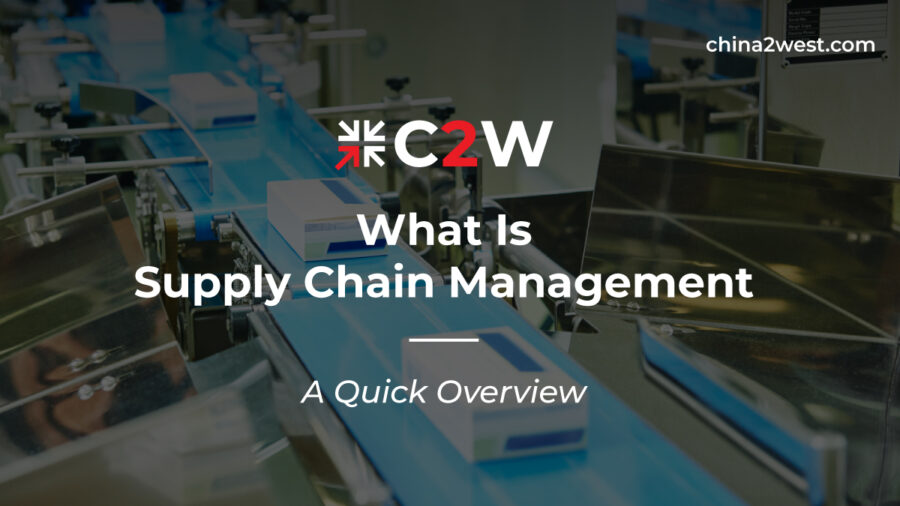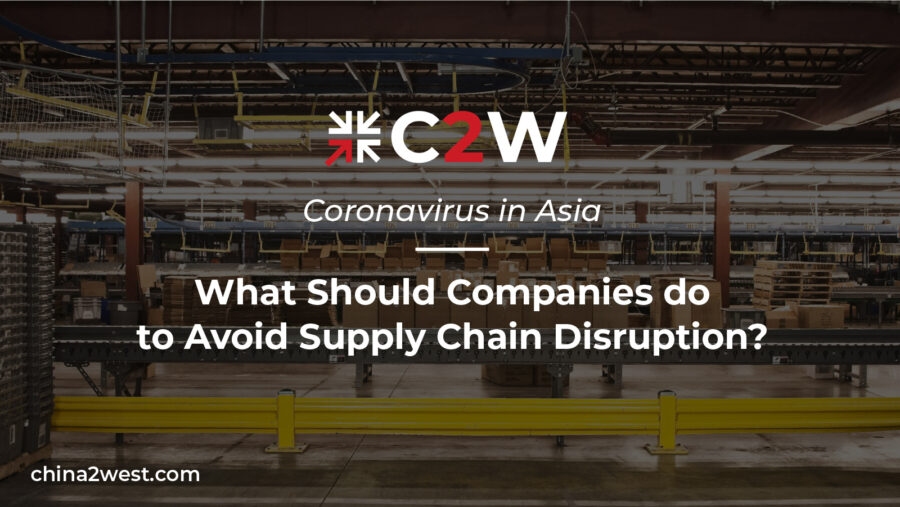Despite the global supply chain being worth a staggering $15.85 billion, only 6% of companies have full visibility of their supply chain. Ensuring a steady supply chain is one of the most crucial aspects of running a business. It ensures that you get goods from the manufacturer and sell them to customers without fail.
If you’re a new business owner, supply chain management is probably a blur to you. Fair enough, but it’s also your responsibility to understand the ins and outs of supply management. So, what is supply chain management, and why is it so important for business?
Keep reading for answers to these and more relevant questions. That’s because today we’ll be highlighting everything you need to know about supply management.
What Is a Supply Chain?
Before we get into the nitty-gritty of supply chain management, let’s first define a supply chain. A supply chain is everything needed to take a product from its inception to the customer. It involves all the events, operations, people, and organizations needed to accomplish this feat.
Let’s take the example of a business in the commercial goods industry. The manufacturer will first have to source the raw materials, manufacture the product, and ship it to distributors. From there, you’ll have warehousing, and delivery before it gets to the vendor.
The vendor’s role in the supply chain is to sell the finished product and end the supply chain. While this is pretty much what a supply chain entails, it can take on different meanings depending on the context. Here’s what we mean by that:
Conceptual: Supply chain can take on a conceptual meaning to indicate the idea of moving products from the manufacturer to the vendor and finally to the customer.
Industry: It can also refer to the whole industry that deals with the movement of these goods, including the rules and protocols.
Function: This indicates the actual supply chain process where operations and employees work to link suppliers to end customers.
As mentioned earlier, the supply chain is a crucial component of any business dealing with commercial products. With that out of the way, let’s have a look at what supply chain management is.
What Is Supply Chain Management?
As the name implies, supply chain management has to do with managing a supply chain, but that’s the surface meaning.
A better definition would be the process of organizing and synchronizing supply chain models in a business. The goal is to make sure that every part of the supply chain works together smoothly, effectively, and efficiently.
You can break supply chain management into five aspects that are vital for a supply chain’s success. These aspects of the supply chain are:
Planning
Adequate planning is the key to proper supply chain management. Both suppliers and vendors must plan accordingly to meet consumer demands.
Demand forecasting is at the core of all supply chain planning operations to ensure an efficient and adequate supply of products. Demand forecasting entails making accurate predictions about future customer demands. This ensures the business meets customer expectations and annual goals.
Sourcing
It’s up to retail businesses to find the right suppliers to source their products. Suppliers, on the other hand, must find places to source raw materials and services. The suppliers a business chooses will play a critical role in ensuring smooth operations.
Part of sourcing involves drafting contracts that outline the terms of supply. It will also explain the relationship between the supplier and the vendor, plus contingency options in case things go wrong. Supply chain managers have the responsibility of ordering, receiving, managing inventory, and paying suppliers.
Production
Businesses in the manufacturing industry also have the onus of making the products in question. This involves inspecting the raw materials for quality control, then manufacturing them. This is then followed by testing to make sure the products are up to standard, and then packaging the final products.
A few important areas that supply chain managers must be keen on are quality standards, employee productivity, and daily output. Remember, production numbers must match demand forecasting figures.
Delivering
This entails ensuring products or raw materials get to their destination on time. It’s one of the most difficult parts of the supply chain process, but it’s very important to its success.
Delivering is a holistic process that entails other subprocesses to ensure it proceeds seamlessly. Some of these sub-processes include organizing orders, scheduling, dispatching, and invoicing. Companies must also make sure their fleets are in good shape and ready to go when needed.
This is undoubtedly one of the trickiest aspects of supply chain management. That’s why smart companies outsource this responsibility to a reputable supply chain management service provider. Doing so will help take a huge load off of the entire process.
Returning
It’s not uncommon for certain products or raw materials to meet the business’s or customer’s requirements. So, the supply chain manager has to make sure that everyone gets their money back.
Businesses need a concrete network to offset and see through the entire return process. This helps maintain the quality standards that they set out and also ensures they meet customer expectations.
What Is the Importance of Supply Chain Management?
Clearly, supply chain management is imperative to the success of any organization, but why is it so important? Here are a few reasons why your business needs effective supply chain management.
- It promotes collaboration between staff members and different departments
- It improves quality control, which translates to better customer satisfaction
- It improves the overall efficiency of various processes within the business
- It helps businesses keep up with demand and eliminates shortfall
These are a few reasons why business owners shouldn’t overlook supply chain management. It could be the difference between massive profits and wallowing in debt.
Streamline Your Supply Chain Management for a Thriving Business
We’ve given a straightforward answer to the question, “What is supply chain management?” It’s now up to you to put the right supply chain measures in place to ensure smooth operations across the board.
Contact us today so we can help your business with its supply chain management.




